Once again, climate scientists have warned that time is running out in the global race to stay ahead of catastrophic climate change. While Kenya and many other countries in the Global South could play a major role in solving the problem, more must be done to unlock that potential.
NAIROBI – Last year in Berlin, the great Kenyan long-distance runner Eliud Kipchoge broke the world marathon record, clocking 02:01:09 and beating his previous time by 30 seconds. His success has made him a legend not only in Kenya but globally. It offers a useful lesson for everyone involved in the fight against climate change. Kipchoge’s winning strategy is rooted in the science of running (as well as 120 miles of hard work every week), and our own approach to the climate crisis must involve the same level of commitment and focus.
As temperatures keep rising and emissions soar, the planet, too, continues to break (dangerous) new records. But with determination and follow-through, we – together with institutional partners and other governments – can start to run faster to get ahead of the climate crisis. Success will depend on following the latest science and mobilizing a joint, broad-based effort of governments and citizens.
In March, the world’s top climate experts and governments signed off on the latest Intergovernmental Panel on Climate Change synthesis report. Once again, the IPCC’s message was stark: Humans have permanently changed the planet, and global warming is already killing people, destroying nature, and making the world poorer. Though African countries have contributed the least to the problem, they are bearing the brunt of the damage. According to the International Energy Agency (IEA), Africa accounts for less than 3% of the world’s energy-related carbon dioxide emissions, and 600 million Africans – an outrageous figure – still do not have access to electricity.
Climate change is a shared problem that the global community must solve by working together, especially given the disproportionate burden being placed on those who are least responsible. During his recent visit to Kenya, German Chancellor Olaf Scholz and I held talks on ways to address the climate crisis. Through the Germany-Kenya Climate and Development Partnership, our two countries have committed to deepen our collaboration on climate-resilient development and renewable energy, including by supporting green-hydrogen production and sustainable agriculture.
We are currently a long way from limiting global warming to 1.5° Celsius or even 2°C, as envisaged by the Paris climate agreement. The climate crisis will not solve itself. On the contrary, we must ensure that global greenhouse-gas (GHG) emissions peak before 2025 at the latest, and then fall by at least 43% by 2030.
This is the year to drive that transformation. The United Nations Climate Change Conference this November-December (COP28) offers an opportunity to accelerate the energy transition, supercharge the growth of renewables, and commit to phase out all fossil fuels – starting with coal.
Kenya is on track to meet these goals. We already generate 92% of our power from clean sources and we have committed to achieving a 100% clean electricity network by 2030. Similarly, renewables generated 46% of Germany’s electricity in 2022 and the government has committed to increase that to 80% by 2030. Critically, these commitments will not only ensure clean power and a safer environment; they will also create jobs, attract investment, and make our economies more secure and resilient in the face of volatile oil and gas prices.
But it is important that we run this race as a team. According to the IEA, the global ratio of clean-energy investments to dirty-energy investments must increase sixfold by 2030 (from 1.5:1 to 9:1).
With a strong partnership between Africa, Europe, and the rest of the international community, Kenya, with its abundant resources, can make significant contributions to decarbonization and the global transition to a net-zero economy. We must unlock climate finance and investment, so that we can harness our potential for green economic growth. But to do that, we will need to fix the current international financial system, which has proven inadequate for dealing fairly with multifaceted global crises, from the COVID-19 pandemic and the climate emergency to debt distress across the Global South.
Next month’s Summit for a New Global Financial Pact, in Paris, provides an opportunity for Europe to galvanize support for reforming the international financial system. The international community must recognize our potential to help solve global problems and take steps to ensure win-win outcomes. That means providing access to affordable, adequate, and sustainable financing that is delivered in a timely manner.
As we reduce emissions, we also need to prepare our people and our housing, agriculture, and food systems for rising temperatures and extreme weather events. Meeting the 2021 COP26 commitment to double global climate-adaptation financing by 2025 remains crucial for protecting people and nature. The latest IPCC report is clear: climate change and insufficient adaptation and mitigation efforts are reversing development gains and undermining economic stability.
But we also must remember that adaptation has limits, and that climate change is already threatening millions of peoples’ lives today. As the IPCC shows, reducing GHG emissions by 43% this decade and stabilizing global warming at or below 1.5°C is still our best chance to keep the problem at a manageable scale. Kenya’s climate summit in September will provide a key opportunity to showcase the continent’s commitment, potential, and opportunities to deal with the climate crisis. We need all governments to step up and agree to phase out unabated fossil-fuel use. We need reforms to make our financial institutions and systems fit for purpose. And we need to take climate action seriously. In the words of Eliud Kipchoge, the key to success is to “walk your talk.”
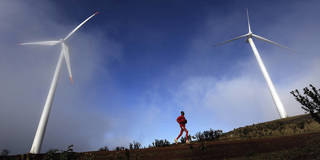


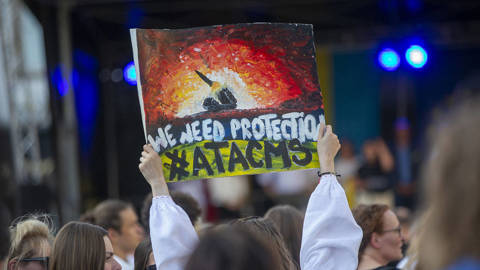
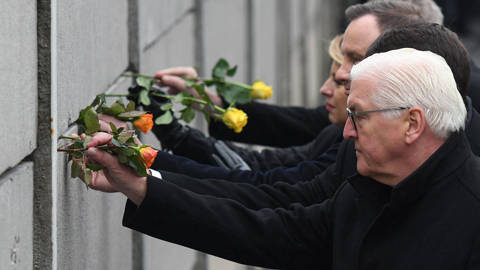
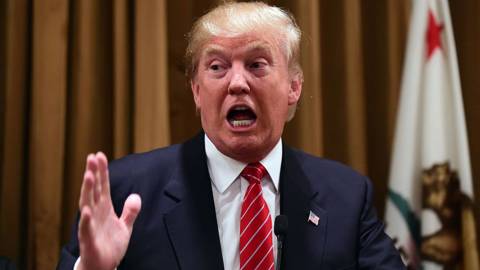
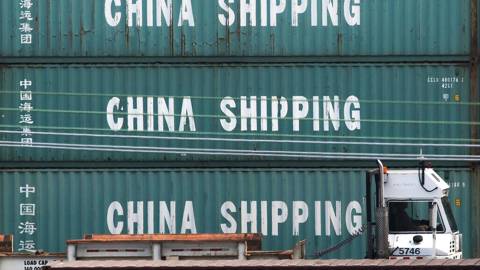

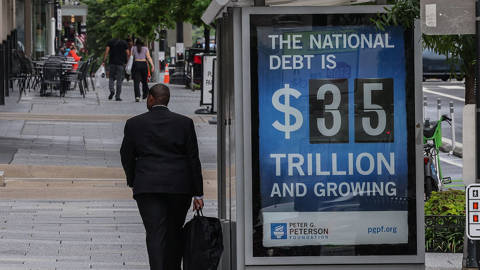
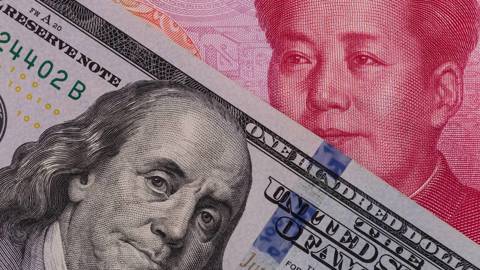
NAIROBI – Last year in Berlin, the great Kenyan long-distance runner Eliud Kipchoge broke the world marathon record, clocking 02:01:09 and beating his previous time by 30 seconds. His success has made him a legend not only in Kenya but globally. It offers a useful lesson for everyone involved in the fight against climate change. Kipchoge’s winning strategy is rooted in the science of running (as well as 120 miles of hard work every week), and our own approach to the climate crisis must involve the same level of commitment and focus.
As temperatures keep rising and emissions soar, the planet, too, continues to break (dangerous) new records. But with determination and follow-through, we – together with institutional partners and other governments – can start to run faster to get ahead of the climate crisis. Success will depend on following the latest science and mobilizing a joint, broad-based effort of governments and citizens.
In March, the world’s top climate experts and governments signed off on the latest Intergovernmental Panel on Climate Change synthesis report. Once again, the IPCC’s message was stark: Humans have permanently changed the planet, and global warming is already killing people, destroying nature, and making the world poorer. Though African countries have contributed the least to the problem, they are bearing the brunt of the damage. According to the International Energy Agency (IEA), Africa accounts for less than 3% of the world’s energy-related carbon dioxide emissions, and 600 million Africans – an outrageous figure – still do not have access to electricity.
Climate change is a shared problem that the global community must solve by working together, especially given the disproportionate burden being placed on those who are least responsible. During his recent visit to Kenya, German Chancellor Olaf Scholz and I held talks on ways to address the climate crisis. Through the Germany-Kenya Climate and Development Partnership, our two countries have committed to deepen our collaboration on climate-resilient development and renewable energy, including by supporting green-hydrogen production and sustainable agriculture.
We are currently a long way from limiting global warming to 1.5° Celsius or even 2°C, as envisaged by the Paris climate agreement. The climate crisis will not solve itself. On the contrary, we must ensure that global greenhouse-gas (GHG) emissions peak before 2025 at the latest, and then fall by at least 43% by 2030.
This is the year to drive that transformation. The United Nations Climate Change Conference this November-December (COP28) offers an opportunity to accelerate the energy transition, supercharge the growth of renewables, and commit to phase out all fossil fuels – starting with coal.
BLACK FRIDAY SALE: Subscribe for as little as $34.99
Subscribe now to gain access to insights and analyses from the world’s leading thinkers – starting at just $34.99 for your first year.
Subscribe Now
Kenya is on track to meet these goals. We already generate 92% of our power from clean sources and we have committed to achieving a 100% clean electricity network by 2030. Similarly, renewables generated 46% of Germany’s electricity in 2022 and the government has committed to increase that to 80% by 2030. Critically, these commitments will not only ensure clean power and a safer environment; they will also create jobs, attract investment, and make our economies more secure and resilient in the face of volatile oil and gas prices.
But it is important that we run this race as a team. According to the IEA, the global ratio of clean-energy investments to dirty-energy investments must increase sixfold by 2030 (from 1.5:1 to 9:1).
With a strong partnership between Africa, Europe, and the rest of the international community, Kenya, with its abundant resources, can make significant contributions to decarbonization and the global transition to a net-zero economy. We must unlock climate finance and investment, so that we can harness our potential for green economic growth. But to do that, we will need to fix the current international financial system, which has proven inadequate for dealing fairly with multifaceted global crises, from the COVID-19 pandemic and the climate emergency to debt distress across the Global South.
Next month’s Summit for a New Global Financial Pact, in Paris, provides an opportunity for Europe to galvanize support for reforming the international financial system. The international community must recognize our potential to help solve global problems and take steps to ensure win-win outcomes. That means providing access to affordable, adequate, and sustainable financing that is delivered in a timely manner.
As we reduce emissions, we also need to prepare our people and our housing, agriculture, and food systems for rising temperatures and extreme weather events. Meeting the 2021 COP26 commitment to double global climate-adaptation financing by 2025 remains crucial for protecting people and nature. The latest IPCC report is clear: climate change and insufficient adaptation and mitigation efforts are reversing development gains and undermining economic stability.
But we also must remember that adaptation has limits, and that climate change is already threatening millions of peoples’ lives today. As the IPCC shows, reducing GHG emissions by 43% this decade and stabilizing global warming at or below 1.5°C is still our best chance to keep the problem at a manageable scale. Kenya’s climate summit in September will provide a key opportunity to showcase the continent’s commitment, potential, and opportunities to deal with the climate crisis. We need all governments to step up and agree to phase out unabated fossil-fuel use. We need reforms to make our financial institutions and systems fit for purpose. And we need to take climate action seriously. In the words of Eliud Kipchoge, the key to success is to “walk your talk.”